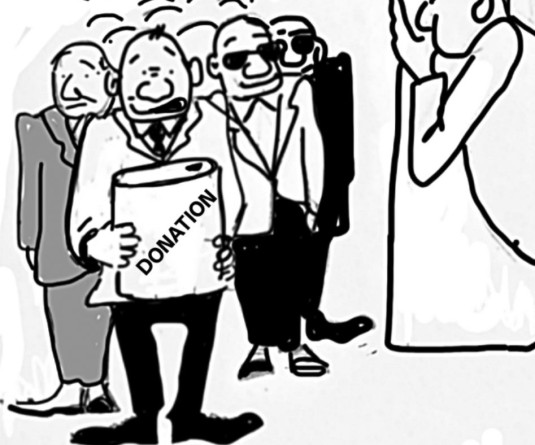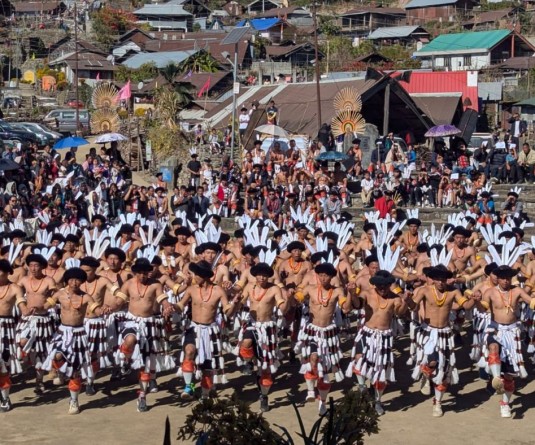The speakers during The Morung Dialogue held under the theme, "In the shifting world, how do we define hope and progress for the Nagas" at 2k Hotel Kohima on October 25. (Morung Photo)
Morung Express News
Kohima | October 26
In designing the kind of development that Nagas want, Seno Tsuhah, Chairperson, NENterprise (Chizami Weaves) pointed to four dimensions including governance, political, cultural and social that are critical to keep in mind. Sharing these insights during the conversation at The Morung Dialogue held under the theme, "In the shifting world, how do we define hope and progress for the Nagas" at 2k Hotel Kohima on October 25, she underscored the need to design development in the way that marginalised people are taken care of from the start.
The other two speakers were Dr. Villo Naleo, Social Concern Secretary of Nagaland Baptist Church Council (NBCC) and Sashi Wapang Lanu, IRS, Additional Commissioner Central GST while Arien Jamir moderated the conversation.
With the class structure coming in and the widening gap between the haves and the have-nots, Seno Tsuhah impressed upon that the solution lies in "coming together". In this connection, she also stated the importance of connecting people with elders, the community, and knowledge holders, and give space to young people who have dreams" while pointing out that, "that connection is missing or is negligible or is weak at present."
She also asserted that, "we really need to see this as one way or part of it to see a progressive environmental society."
Following the presentations by the resource speakers, some of the issues that were deliberated upon based on the questions put forward by the audience revolved around how young Nagas can welcome modernization while staying united with their cultural roots, decolonization, drug abuse, Article 370A, educated unemployed youths, etc.
'We live in a world of consumerism today'
Even as most businesses in Nagaland are run by outsiders, Sashi Wapang Lanu, IRS, Additional Commissioner Central GST remarked that, "we live in a world of consumerism today, where we can also invest in our tradition'. He also maintained that if one has the willingness to work, "there are so many ways that we can also profit by not just being dependent on government jobs."
With many young people being told that maybe government service is the only thing, which might have been true in the past, he also recalled that two generations back, there were not enough Nagas to fill up job positions. "When my father, who studied engineering in the late 70s, finished and came back, there was a job waiting for him ", he said while highlighting that there were so many spaces empty because of the lack of qualified Nagas.
Two generations later, the scenario has changed and we are oversaturated, he noted.
On the other hand, with Nagaland's economy being run by outsiders, he remarked that, "in a sense, it is an artificial kind of unemployment."
He impressed upon that there are so many jobs that need to be done and can be done.
'Progress is a human endeavour but hope comes from God'
Dr. Villo Naleo, Social Concern Secretary of Nagaland Baptist Church Council (NBCC) spoke about looking at ourselves from historical experiences and overcoming the problems.
Citing an instance in this regard, he said, "if we have been humiliated, in terms of our social identity, how do we also project ourselves as people who have been humiliated, but then we have overcome humiliation. It could be an alternative. It could be humility."
He underscored that Nagas need to overcome the historical hurts by using certain ways, which could also be an exercise of one's faith.
"It could be truth-telling, storytelling or telling our narratives in a positive way", he put across.
He also called for the need to adopt "positive mindset" in order to overcome.
"For me, progress is a human endeavour. But hope comes from God", he further articulated while expressing that, “for me, as a Christian, our hope is in Christ alone.”





